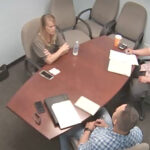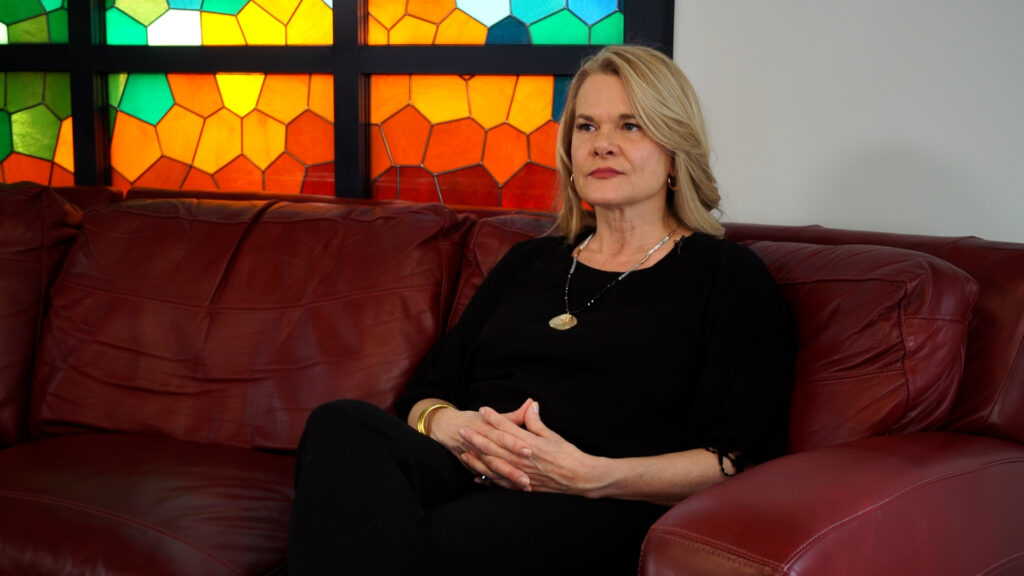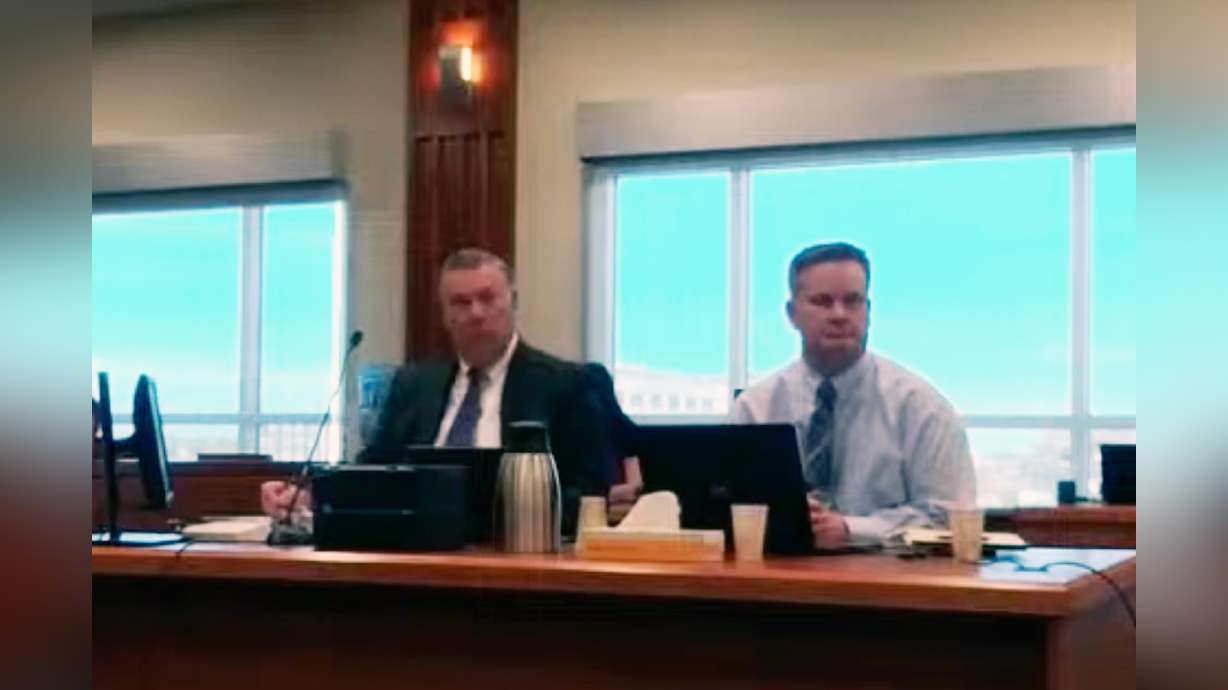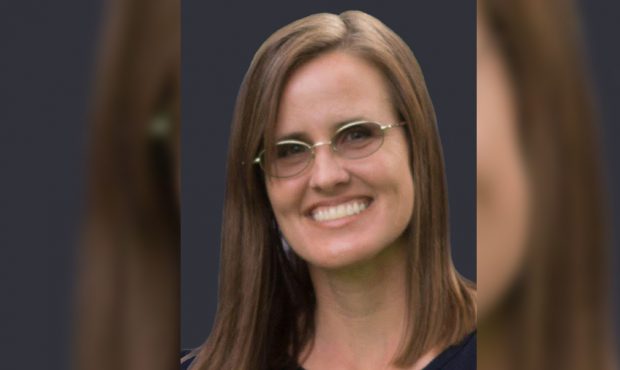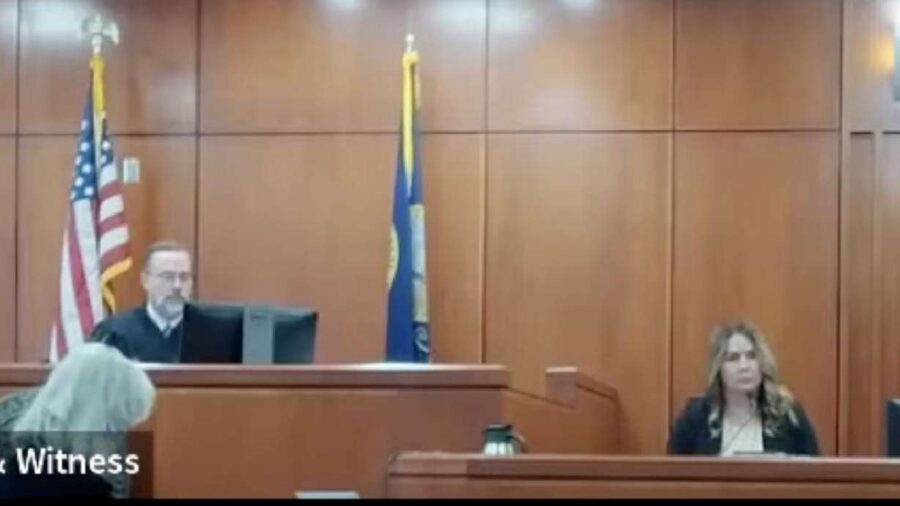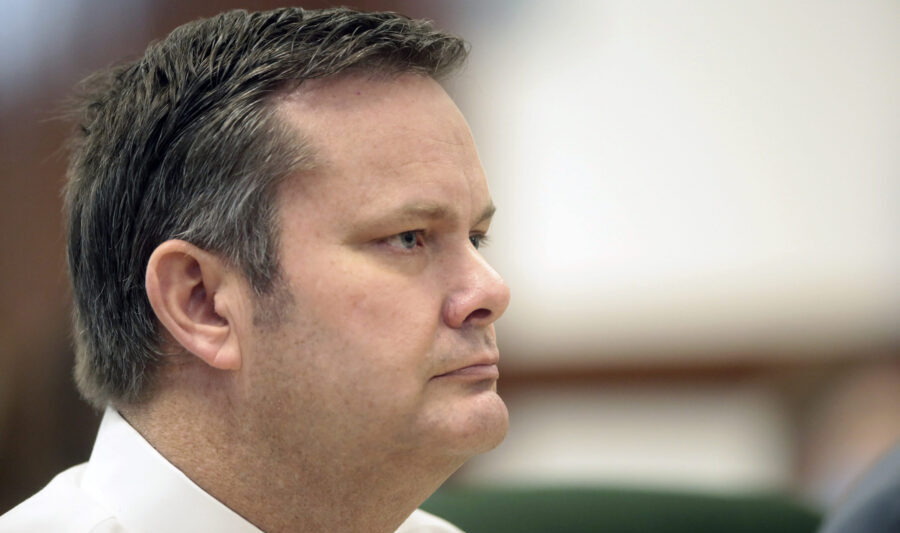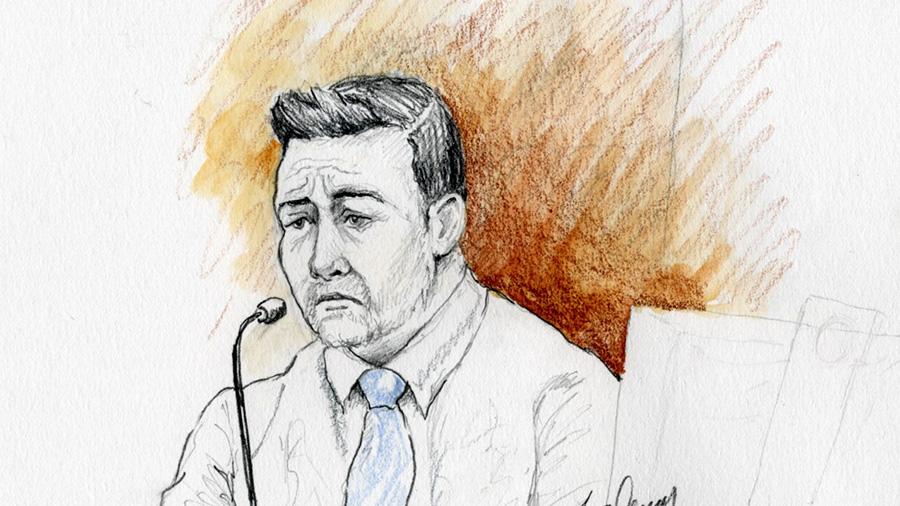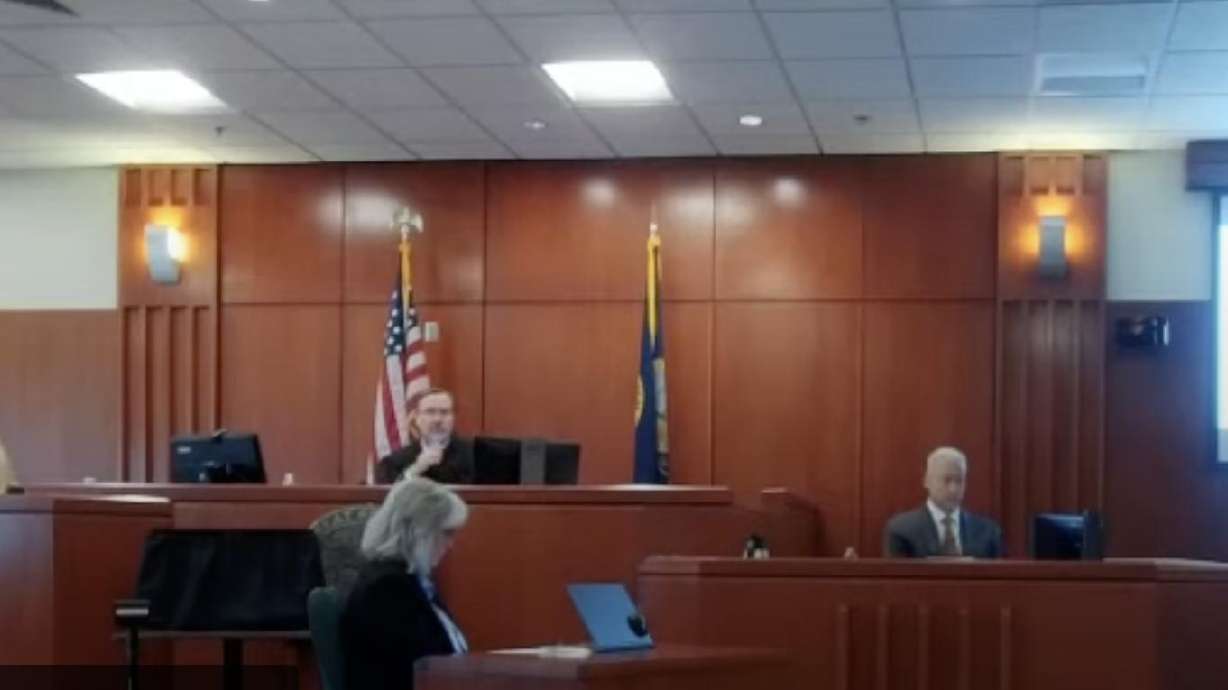Radicalized Religion: When did Lori Vallow Daybell’s beliefs become dangerous?
Apr 5, 2023, 2:01 PM | Updated: May 16, 2023, 11:15 am
BOISE, Idaho — From missionary and one-time Primary president to facing first-degree murder charges in the deaths of two children, Lori Vallow Daybell and Chad Daybell went from seemingly mainstream members of The Church of Jesus Christ of Latter-day Saints to following and practicing beliefs far outside the official teachings and doctrine.
Religious scholars say the road to radicalized religion often starts small.
“Sometimes, there are formal offshoots of The Church of Jesus Christ of Latter-day Saints — people who formally rescind their membership and create a new group, create a new church, and then other times, it’s just people who develop their own ideas that actually might be out of sync with the mainstream church,” said Patrick Mason, director of Utah State University’s Religious Studies program. “Sometimes, they take formal structure, and sometimes, it’s a more informal group of people, oftentimes on social media.”
Click here for complete coverage of the Lori Vallow Daybell trial
In interviews with police, friends said Vallow Daybell’s long-held Latter-day Saint beliefs changed dramatically after meeting Daybell.
“She was a really good mom. She was very helpful to everyone. We served in our church together and we were great friends. I trusted her with my children,” April Raymond told an investigator with the Chandler Police Department in Arizona.
Raymond knew Vallow Daybell when she and her fourth husband, Charles Vallow, lived in Hawaii between 2014 and 2016. Raymond said Vallow Daybell was different when she returned to Hawaii years later.
“She had made comments about Charles already being dead and that there was a demon living inside of him. I just thought she just snapped. I didn’t know what was going on, but she was a completely different person.”
Living on the edge of heaven
Daybell claimed two near-death experiences in his late teens and early twenties left him with a special connection to the spirit world. As an author, he wrote about his experiences, including visions of the future.
Many of Daybell’s fiction works focus on end-of-times, “doomsday,” apocalyptic stories, and he was a frequent guest at preparedness conferences and on “prepper” podcasts. It was at one of those conferences that Lori first met Chad.
Mason said gatherings like conferences are often where the ideas of these offshoot groups are spread.
“There’s a recognition that, ‘OK, some of this stuff may not play very well in Church on Sundays, you know?'” Mason said. “There’s a recognition that it sounds different, or it’s distinct from kind of mainstream Mormonism, and so that’s why some of these other outlets, whether it be online or whether it be through in-person gatherings, conferences that people have, oftentimes these ideas play out in those other venues.”
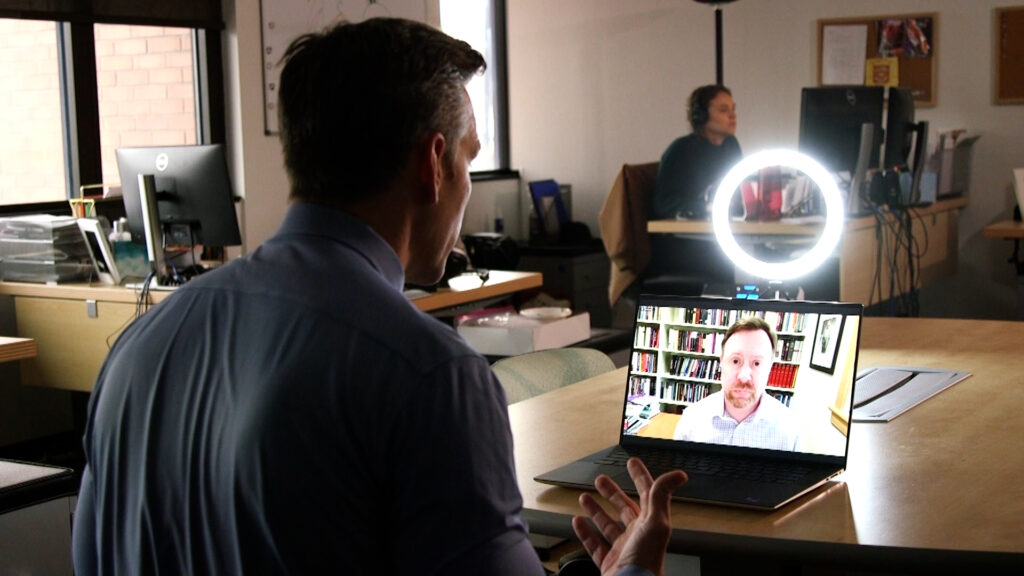
KSL TV’s Mike Headrick talks to Patrick Mason, director of Utah State University’s Religious Studies program. (KSL TV)
Vallow Daybell and Daybell found friends and followers who had like-minded beliefs. They studied scripture together and attended Latter-day Saint temples together.
“The people in these different groups, they feel like they have additional knowledge,” Mason said. “They sort of take the Church as a baseline, but say, ‘OK, the Church is kind of doing a lowest common denominator thing, but we have special knowledge,’ or ‘we have access to new information that God has given to use or to the way that we interpret scripture, and that gives us, you know, kind of a different identity, even if we can go to Church with everybody else.'”
Demons, zombies & dark spirits
Court documents and interviews with Vallow Daybell’s friends have revealed many of her radical religious beliefs that span from spiritual to mystical.
“She believes she has the Patriarchal power, which was higher than the Melchizedek power,” long-time friend Melanie Gibb said in an interview with police.
An indication that Vallow Daybell had shifted her beliefs from the doctrine of The Church of Jesus Christ of Latter-day Saints when it pertained to priesthood powers, which in the Church are only available to male members of the faith.
“Chad would help groom her into these beliefs and ideas,” Gibb continued. “He would help her believe more and more, like, ‘You’re the most powerful woman in the world.'”
Other friends told police about strange conversations they had with Vallow Daybell in which she talked about demons and zombies taking over the bodies of her family members.
“She had made comments about Charles already being dead and that there was a demon living inside of him,” Raymond told police.
“She had kind of some wild ideas about the idea of her husband being possessed,” friend Christina Atwood said in an interview with police. “And she was concerned that Tylee also had these dark spirits that were trying to control her.”
Sarena Sharpe told police that Vallow Daybell had told her, “Satan was ramping up his powers, and that evil is so pervasive in this world, and that it was her job — she was responsible for casting out these zombies.”
At what point does it turn dangerous?
In a worldwide church of 17 million members, it would be impossible for Latter-day Saint leadership to monitor the private beliefs of individuals. And schismatic groups are not unique to The Church of Jesus Christ of Latter-day Saints, as they are common in all major religions.
“In the United States of America, you know, we allow for freedom of speech. We allow for people to have different ideas. That’s not a problem. But I think with Chad and Lori at least, what it appears, or what they’re accused of, is when those things turn into, when those ideas turn into the idea that they need to take out other people, when they need to commit violence against other people, that’s when those ideas really become dangerous,” Mason said.
Before his death in 2020, Charles Vallow called police, begging for them to intervene and get his wife help for her mental health. In later released body-cam footage, he can be seen telling an officer that Lori had threatened to kill him because she believed his body had been taken over by someone else.
“She says I’m Nick Schneider. I’ve taken over Charles’ body and Charles has been killed and I’m going to kill you. You’re going to be murdered today or tomorrow. I can do it with my Priesthood powers,” he told police.
Charles expressed concern over the safety of JJ and Tylee at the time.
Lori did meet with officers and have a mental health exam in January 2019 and she was medically cleared. Six months later, Lori’s brother, Alex Cox, shot and killed Charles inside Lori’s Chandler, Arizona, home, in what he said was “self-defense.”
Police later ruled the death a homicide, but before any charges could be filed, Cox had died from an apparent heart attack.
Lori was indicted on charges of conspiracy to commit murder in Charles’ death. Those charges are on hold while the case in Idaho plays out.
Radical vs. real
“The type of belief that Daybell was preaching to his small group, you know — that people can become zombies because their spirits could go dark, and therefore, they needed to be killed so that they could cast out the zombies — those things are nothing that would be recognizable to mainstream Latter-day Saints today,” said Barbara Jones Brown, director of Signature Books Publishing. “Or the belief of reincarnation. He taught that all people have up to nine lives on this earth. Those kinds of things are really just so far out of line with mainstream Latter-day Saint belief.”
With so many different portrayals in the media in recent years and the upcoming trial of Vallow Daybell, there’s sure to be a significant misunderstanding over what is a real teaching of the Church and what is a radical, extreme belief.
Mason told KSL this has been a problem for the Latter-day Saint faith since the beginning.
“Whether in the media or another forum, people are attracted to the more sensational aspects — whether it be violence, whether it be sex scandals, whether it be polygamy and other kinds of things. And you know, a lot of these practices are outgrowths of and are related to, but actually very different from the ways that most Latter-day Saints live and believe in their religion.”
He said one of the challenges, on a national scale, is that a large percentage of Americans have never even met a member of the Church. A 2022 national survey found nearly half of Americans have no friends or family members who are Latter-day Saints. That number is even higher the further you get from the Mountain West region.
“Their knowledge and their understanding of the religion is pretty shallow,” Mason said. “What they know about the religion is what they see on TV.”
He pointed out that this is also a problem not unique to one faith.
“A lot of people don’t know all that much about Islam, or don’t know very many Muslims, and so what they see in the news — whether it be about Al-Qaeda or some other violent Muslim extremist — even if they know intellectually that that’s a fringe of the group that doesn’t represent the whole, there’s some part of them that says, ‘Well, there must be something about that religion that promotes this kind of extremism.'”
It’s important, Mason said, for all viewers of the Vallow Daybell trial to recognize their own lack of understanding or lack of knowledge so as not to make judgments about the entire Latter-day Saint faith based on what’s presented in the courtroom.
“For a casual listener, a casual viewer who doesn’t know that much or doesn’t have that much context, it’s easy for them to conflate the extreme with the majority of people who live good, decent lives.”


